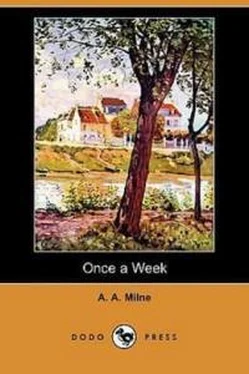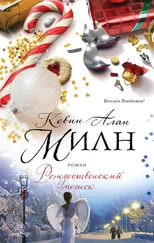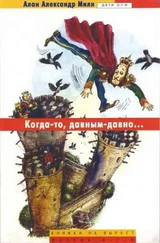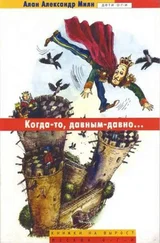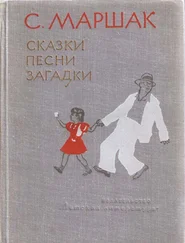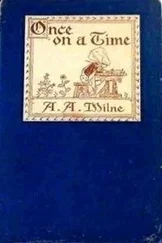"Come along," said a bright voice behind me; "this is ours."
"Hallo, Norah, is that you? Come on."
We hurried in, danced in silence, and then found ourselves a comfortable seat. For a moment neither of us spoke….
"Have you learnt the tango yet?" asked Norah.
"Fourteen," I said aloud.
"Help! Does that mean that I'm the fourteenth person who has asked you?"
"The night is yet young, Norah. You are only the eighth. But I was betting that you'd ask me before I counted twenty. You lost, and you owe me a pair of ivory–backed hair–brushes and a cigar–cutter."
"Bother! Anyhow, I'm not going to be stopped talking about the tango if I want to. Did you know I was learning? I can do the scissors."
"Good. We'll do the new Fleet Street movement together, the scissors–and–paste. You go into the ball–room and do the scissors, and I'll—er—stick here and do the paste."
"Can't you really do any of it at all, and aren't you going to learn?"
"I can't do any of it at all, Norah. I am not going to learn, Norah."
"It isn't so very difficult, you know. I'd teach you myself for tuppence."
"Will you stop talking about it for threepence?" I asked, and I took out three coppers.
"No."
I sighed and put them back again.
* * * * *
It was the last dance of the evening. My hostess, finding me lonely, had dragged me up to somebody, and I and whatever her name was were in the supper–room drinking our farewell soup. So far we had said nothing to each other. I waited anxiously for her to begin. Suddenly she began.
"Have you thought about Christmas presents yet?" she asked.
I nearly swooned. With difficulty I remained in an upright position. She was the first person who had not begun by asking me if I danced the tango!
"Excuse me," I said. "I'm afraid I didn't—would you tell me your name again?"
I felt that it ought to be celebrated in some way. I had some notion of writing a sonnet to her.
"Hopkins," she said; "I knew you'd forgotten me."
"Of course I haven't," I said, suddenly remembering her. The sonnet would never be written now. "We had a dance together before."
"Yes," she said. "Let me see," she added, "I did ask you if you danced the tango, didn't I?"
Part 9
The Men Who Succeed
Mr. Trevor Pilkington, of the well–known firm of Trevor Pilkington, fixed his horn spectacles carefully upon his nose, took a pinch of snuff, sneezed twice, gave his papers a preliminary rustle, looked slowly round the crowded room, and began to read the will. Through forty years of will–reading his method of procedure had always been the same. But Jack Summers, who was sharing an ottoman with two of the outdoor servants, thought that Mr. Pilkington's mannerisms were designed specially to annoy him, and he could scarcely control his impatience.
Yet no one ever had less to hope from the reading of a will than Jack. For the first twenty years of his life his parents had brought him up to believe that his cousin Cecil was heir to his Uncle Alfred's enormous fortune, and for the subsequent ten years his cousin Cecil had brought his Uncle Alfred up in the same belief. Indeed, Cecil had even roughed out one or two wills for signature, and had offered to help his uncle—who, however, preferred to do these things by himself—to hold the pen. Jack could not help feeling glad that his cousin was not there to parade his approaching triumph; a nasty cold, caught a week previously in attending his uncle to the Lord Mayor's Show, having kept Cecil in bed.
"To the Society for the Prevention of Cruelty to Children, ten shillings and sixpence"—the words came to him in a meaningless drone—"to the Fresh Air Fund, ten shillings and sixpence; to the King Edward Hospital Fund, ten shillings and sixpence"—was all the money going in charities?—"to my nephew Cecil Linley, who has taken such care of me"—Mr. Pilkington hesitated—"four shillings and ninepence; to my nephew, John Summers, whom, thank Heaven, I have never seen, five million pounds―"
A long whistle of astonishment came from the ottoman. The solicitor looked up with a frown.
"It's the surprise," apologised Jack. "I hardly expected so much. I thought that that brute—I mean I thought my cousin Cecil had nobbled—that is to say, was getting it all."
"The late Mr. Alfred made three wills," said the lawyer in a moment of expansion. "In the first he left his nephew Cecil a legacy of one shilling and tenpence, in the second he bequeathed him a sum of three shillings and twopence, and in the last he set aside the amount of four shillings and ninepence. The evidence seems to show that your cousin was rapidly rising in his uncle's estimation. You, on the other hand, have always been a legatee to the amount of five million pounds; but in the last will there is a trifling condition attached." He resumed his papers. "To my nephew, John Summers, five million pounds, on condition that, within one year from the date of my death, he marries Mary Huggins, the daughter of my old friend, now deceased, William Huggins."
Jack Summers rose proudly from his end of the ottoman.
"Thanks," he said curtly. "That tears it. It's very kind of the old gentleman, but I prefer to choose a wife for myself." He bowed to the company and strode from the room.
* * * * *
It was a cloudless August day. In the shadow of the great elms that fringed the Sussex lane a girl sat musing; on its side in the grass at her feet a bicycle, its back wheel deflated. She sat on the grassy bank with her hat in her lap, quite content to wait until the first passer–by with a repairing outfit in his pocket should offer to help her.
"Can I be of any assistance?" said a manly voice, suddenly waking her from her reverie.
She turned with a start. The owner of the voice was dressed in a stylish knickerbocker suit; his eyes were blue, his face was tanned, his hair was curly, and he was at least six foot tall. So much she noticed at a glance.
"My bicycle," she said; "punctured."
In a minute he was on his knees beside the machine. A rapid examination convinced him that she had not over–stated the truth, and he whipped from his pocket the repairing outfit without which he never travelled.
"I can do it in a moment," he said. "At least, if you can just help me a little."
As she knelt beside him he could not fail to be aware of her wonderful beauty. The repairs, somehow, took longer than he thought. Their heads were very close together all the time, and indeed on one occasion came violently into contact.
"There," he said at last, getting up and barking his shin against the pedal. "Conf― That will be all right."
"Thank you," she said tenderly.
He looked at her without disguising his admiration; a tall, straight figure in the sunlight, its right shin rubbing itself vigorously against its left calf.
"It's absurd," he said at last; "I feel as if I've known you for years. And, anyway, I'm certain I've seen you before somewhere."
"Did you ever go to The Seaside Girl ?" she asked eagerly.
"Often."
"Do you remember the Spanish princess who came on at the beginning of the Second Act and said, 'Wow–wow!' to the Mayor?"
"Why, of course! And you had your photograph in The Sketch , The Tatler , The Bystander , and The Sporting and Dramatic all in the same week?"
The girl nodded happily. "Yes, I'm Marie Huguenot!" she said.
"And I'm Jack Summers; so now we know each other." He took her hand. "Marie," he said, "ever since I have mended your bicycle—I mean, ever since I have known you, I have loved you. Will you marry me?"
"Jack!" she cooed. "You did say 'Jack,' didn't you?"
Читать дальше
